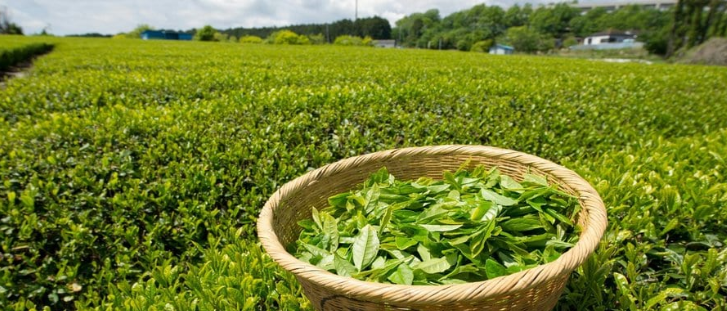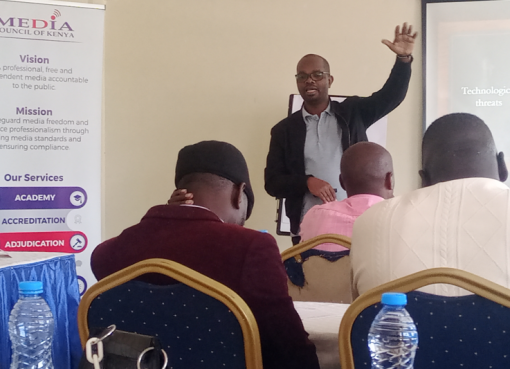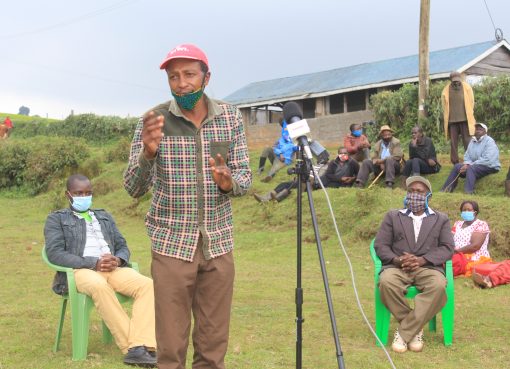Mombasa Tea Auction will start operating for five days in a week in order to enhance its capacity to handle all tea produced in the country and the region.
The increase in the number of trading days will take place after auction regulations are enacted as stipulated in the Tea Act 2020.
The new sale system installed at a cost of Sh 217 million from the Danish International Development Agency as the main donor and the Trade Mark East Africa (TMEA), will enable players to operate it from their homes and offices.
Agriculture Cabinet Secretary (CS), Peter Munya, noted that initially the tea auction was being operated three days in a week but since the trading has gone electronic and the catalogues can now be generated online, it was time to move on and increase the time.
“It is important to note that tea auctions should now be held throughout the week and not necessarily the three days as currently designated by the East African Tea Traders Association (EATTA) Secretariat,” he said.
Munya in a statement on the operations of the Tea Auction, further said that absorption of tea on offer should be enhanced since the system should be able to automatically re-list the tea for sale the same day of auction, saying this coupled with anonymous bidding, should enhance price discovery mechanism for the tea at sale.
“All this is being done under the new tea reforms which are being instituted by the government for the benefit of enhancing accountability and transparency in the industry, even as some value chain players are vehemently opposing them,” Munya stressed.
The Mombasa Tea Auction for example is owned and run by value chain players, with the Kenya Tea Development Authority (KTDA), being one of the most dominant players.
On last Friday’s operations for scrutiny and investigations by officers from the Attorney General (AG) Office, the CS refuted claims that there was disruption, saying the week’s schedule was managed and requisite auctions executed.
“Reports carried in the section of the media indicating that last Fridays operations by AG at the Mombasa Tea Auction secretariat offices adversely affected regular auction schedule is therefore not true” he affirmed.
Munya explained that EATTA Secretariat allowed the AG office to complete its inquiry on Monday and that all the three actions were held within two days instead of three with 12.64 million Kilograms offered for sale hence no negative impact on the trading.
On the rescheduling of the trading that was done by EATTA, the CS said was unwarranted, as the inquiry would not have in any way interrupted the subsequent trading as the auction is conducted online and the trading platform is web based.
Mombasa tea auction is the biggest centre trading over 450 million Kilograms of tea annually from an average of 650 million Kilos produced in ten countries within the region, out of the total tea traded, 78 per cent of the quantity comes from Kenya.
The Auction has overseas tea buyer representatives and agents drawn from over 70 markets destinations globally, with top exports being Pakistan, Egypt, UK, Russia, UAE, Sudan, Yemen, Kazakhstan, Poland and Jordan, controlling about 85 per cent of the purchases.
The volume of tea offered and sold on a weekly basis also varies from eight to 13 million Kilograms, depending on the season, while the average value for the tea sold is about Sh 2 billion.
The new Tea Act 2020, Government banned direct sale of tea and instead directed that all tea produced locally be sold through the Auction.
Since 2017 EATTA had been working on the new online system with assistance from the donors and went operational six months ago.
The Attorney General Officers had last week raided the Kenya Tea Development Authority (KTDA) Offices in Nairobi and EATTA Offices in Mombasa, investigating compliance breaches committed by KTDA Directors, including potential price and auction manipulation, abuse of dominance, insider trading and other malpractices within Tea body.
The KTDA is the third biggest buyer at the Mombasa Auction, controlling 10 per cent of the auction purchases in terms of volumes.
By Wangari Ndirangu





